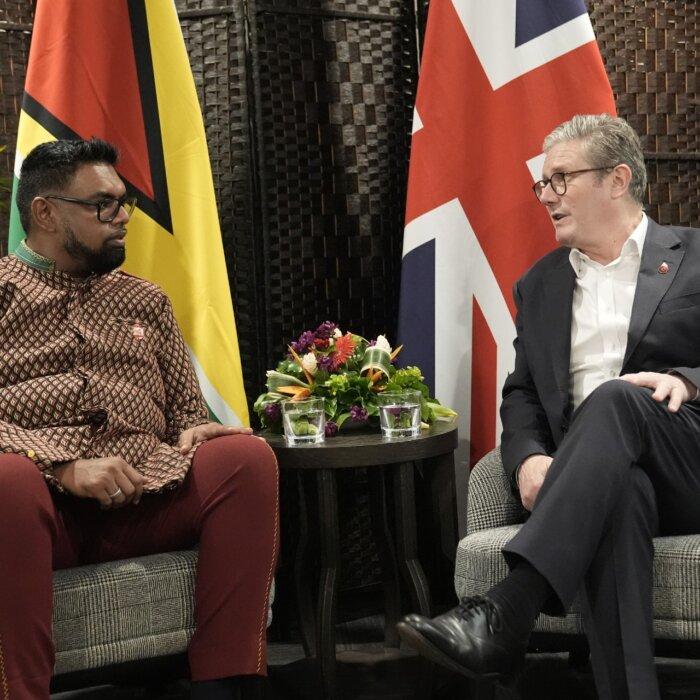Britain “does not pay reparations,” a minister has said amid calls from leaders of some Commonwealth countries for financial compensation from the UK for its historial role in the transatlantic slave trade.
Foreign Office minister Anneliese Dodds was asked by MPs to clarify the government’s stance after a joint statement signed by attending nations at a major Commonwealth summit over the weekend touched on the matter of reparations.
‘Based on Equity’
Speaking in the House of Commons on Monday, Conservative MP Sir Ashley Fox said of the statement jointly signed in Samoa: “‘Based on equity’ is the language normally used by those seeking compensation. Can the minister explain what it means in plain English? Does it mean parting with taxpayers’ money, and if not, what does this statement mean?”Pressing Dodds on the same point, shadow Foreign Office minister Dame Harriett Baldwin said of the statement: “It implies the UK’s openness to reparatory justice in relation to the abhorrent slave trade. It seems that this issue is not as off-limits as the prime minister had previously stated.
“So what is the government’s actual red line on reparations given the foreign secretary’s (David Lammy) well-known past views on the topic, or is this another example of saying one thing in opposition but another in government?”
Before becoming foreign secretary, Lammy consistently supported the idea that the UK should consider paying reparations.
In an interview in 2020, he stated: “Britain will get to a point where we have to discuss power and reckoning and repairing—and to some extent that is obviously financial.”
Dodds said the UK government prioritised economic development and action on what she termed the climate and nature “crisis.”
She also said: “Just to be absolutely crystal clear on this, of course, everyone in this House I’m sure would agree that the slave trade was abhorrent and we condemn it, just as previous Labour governments have done.
“And as the prime minister made clear in Samoa, it’s important that we start from there.
‘Resentment’ Passed Down
Conservative MP Sir Julian Lewis (New Forest East) said that any discussion on reparations makes “a nonsense of the concept of individual responsibility.”He told MPs: “When one group of people have done something terrible to another group of people, it is understandable that resentment about that can pass down to the next generation and possibly the generation after that.
“But does the minister agree with me that to say that that process can continue over two centuries, and thus require guilt to be expiated in the form of reparations, is to make a nonsense of the concept of individual responsibility?”
Dodds said it is the government’s view that, “We have to focus on the future”, adding: “That’s the approach that we took at the CHOGM meeting.”
Conservative former minister Dr. Andrew Murrison asked if the minister would “accept that heads of government who are watching this process are perfectly entitled reasonably to deduce that the UK is now on a journey that will lead to reparations.”
He continued: “Will she further accept that there is a clear difference between providing compensation to people who have been harmed by the state, from tainted blood victims to subpostmasters, but that is entirely different to reparations paid in respect of events that happened 200 years ago?”
Dodds replied: “I do not believe heads of government are in any doubt about the new UK Government’s approach to these questions.”
She added that “none” of the UK government discussions at CHOGM had been about money.
Claim UK ‘Owes £18 Trillion’
The Brattle Report, published last year by the University of West Indies—and backed by Patrick Robinson, a judge who sits on the International Court of Justice—claimed that the UK owed more than £18 trillion in reparations for its role in slavery in 14 Caribbean countries.In a recent opinion poll, 24 percent of white people living in the UK (who were not all British) said that they supported the government paying reparations to black people living in the UK, but 61 percent of black people backed the move.
The UK government played a significant role in ending the slave trade through the act of abolition in 1807 following a long campaign led by the MP William Wilberforce.
Slavery was outlawed throughout the British Empire from 1833, and the Royal Navy devoted much of its time and resources to preventing the slave trade on the oceans in the 19th century.
As well as pointing out that the UK made the slave trade illegal 217 years ago, opponents of reparations point to the fact that white people have also been enslaved historically, and that some black people were themselves slave traders and owners.
Starmer announced at CHOGM that Britain will host a UK-Caribbean forum in 2025, “focused on looking forward, not back,” and with issues around climate, education, trade, and economic growth on the agenda.







